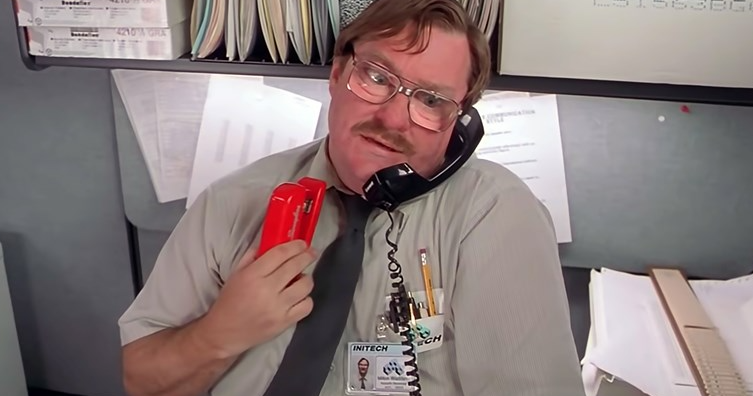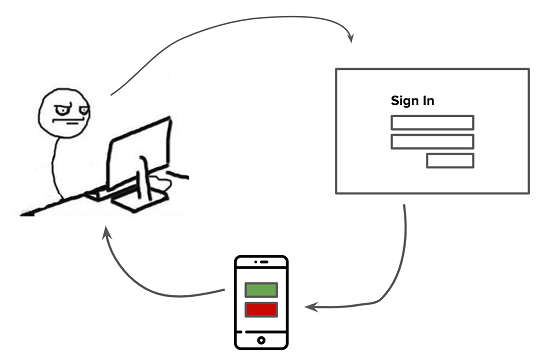Update: I guess this became old news while I was sleeping.
I was out of the office this past week when Unity emitted some signals about business model changes that were primarily perceived on a scale from “toilet flushing” to “death rattle” by most of the game developer community. You know how to Google if you want to know more.
There is no surprise to anyone that Unity is trying to make more money. This is what businesses do for a living—especially public companies. The big surprise came around the details of what they were proposing. I counted precisely two people who responded with “This is an entirely reasonable thing to do.” One of them claims this because it does not affect their personal project. The other one surprised me with the depths at which they tried to say “This is fine!” The second one has an entrenched position as a former game publishing executive and current Unity shareholder that gives them some plausible rationale for their batshit lunatic uncaring personal opinion. That is right everyone, I am subtweeting on my blog. Nanner nanner poo poo.
So what is wrong with Unity’s new proposal to charge per install?
A lot of people are griping about the notion of “democratizing game development” from the early Unity founders and previous promises made that this will never happen. I concede that these two things have amped up the emotion around the subject.
I want to talk about four things here: Timing, blast radius, enforcement, and shenanigans.
Let’s start with the timing. About a decade ago, I used to work in developer relations for a social games platform. It was not a successful social platform in some ways, especially for people who migrated games over from Facebook and their North American-centric audience. A number of companies that brought games to us at Hi5 decided that the platform was not working successfully and wanted to sunset their games. We would ask them to give an announcement to the community about the coming event as well as give them thirty to ninety days to play on the platform with commerce options turned off. This was generally accepted as a good business practice for someone spending five, ten, or even one hundred bucks on a social game.
This is not the timing for a tectonic shift in your business model for thousands of business partners generating millions of dollars of revenue.
If you are going to make a substantive change like this for your partners, you want to give them six months to a year of notice, and potentially phase it in for new titles or on specific versions of software. This made a really bad announcement into something much worse.
The next thing I want to talk about is the blast radius of the new pricing structure. There was a super-gaslighty attempt to reassure everyone that this only affects ten percent of their developer customers. Whether this is true or not will be up to someone else to figure out. I will say that one person I have spoken to has said this will not affect them. A significant number of other people have done some math: between three percent to a whopping one thousand percent in some worst-case scenarios for mobile game developers. Most PC and console games will not be affected by this, and I would imagine that mobile developers greatly outnumber console or PC developers based on my own suspicions. I know that the ten to fifteen people who have asserted it will impact them are just an empirical data point, and there are also dozens, if not hundreds, of other high-profile mobile game developers out there making bombastic statements about how this hurts their business.
I freely admit that I have more direct conversations with mobile developers than PC or console developers on any given day. I also know that Mobile contains a lot more “free to play” behaviors where you typically install a game and hope that one percent of your users will convert to a paying audience. I will talk more about this shortly.
The third thing that strikes me as a serious red flag is how Unity will define and enforce installs. In their own words:
“We leverage our own proprietary data model and will provide estimates of the number of times the runtime is distributed for a given project – this estimate will cover an invoice for all platforms.“
That raises all kinds of questions and concerns for me. Having worked with GDPR and ‘right-to-forget’ implementations, there is certainly a world where this data will be hard, if not outright illegal to track. It is called Europe. There will be lots of unusual edge cases for demo software and also lots of new vectors for angry game audiences to inflict economic harm on a game studio.
The final thing I want to talk about here is related to mobile again, and some shenanigans. I do believe that more than ten percent of the game companies out there will be materially impacted by Unity’s pricing changes and that many of them will be mobile game companies. A significant number, if not the majority, of these companies will be companies that are using advertising platforms to generate revenue off of a large number of installs in order to make a modest amount of revenue after spending a considerable amount of money on buying traffic. The hypercasual game segment is a good example of this. Unity has merged with Ironsource and is offering to waive the majority (or entirety) of the install fee for partners who sign up with Ironsource ads.
On the face of it, these look like some monopolist-style shenanigans to me. A quick check with some of my super-secret spies has confirmed that it would be more effective for some people to pay the install fee than switch over to Ironsource, which is pretty shocking. This winds up being a pretty slimy way to induce people to try your advertising services, which is where Unity makes a large portion of its money.
I am going to set aside all of the fist-shaking, emotional feelings about the current leadership and how this is essentially “EA destroys Bioware” all over again, or any of the similar threads making their way around the internet. Unity is trying to make money and it is trying to make money fast. We can gripe about their merger with Ironsource, or their acquisition of Weta Digital, but attempting to navigate the near future is why Unity pays their CEO 11 million dollars a year.
We all have ideas about where things are going and sometimes they are not even close even after drinking three or four or twelve beers.
So what should we do as developers?
What should we do if we are pointy-haired bosses at Unity?
If you are a PC or Console developer you probably price that install fee into your overall game plan and weep silently as the door to easily adding revenue in mobile just got twenty cents farther away. I know one person who has already written off this cost.
If you are a mobile developer, you are probably halfway out the door to a different platform. And I would be too.
If you are making 3D mobile games, you are already paying one to seven dollars to purchase an install regardless of whether or not they make money. If you are making less than two million dollars on your game, as a mobile game you are probably better off migrating to Unreal Engine for some measly unit economics. If you are making more than two hundred thousand dollars, that is absolutely true. You are probably already upgrading to the next level of Unity subscription because you have a gun to your head for your existing project, and figuring out how to keep your existing Unity experts around while spinning up a mobile team using Unreal Engine.
If you are making 2D mobiles, you are probably switching to a different engine too. Godot is probably the most fully baked engine out there and if it had a decent community following before, it would surely increase substantially as a result of this past week’s news from Unity.
Half of the reason for you to make this drastic change is the immediate economics. The other half is the deep truth that until Unity has plugged its revenue hole significantly, it will do other, similar drastic measures in the future. This will be a calculation that happens every three months because it is a public company.
There are already people installing new SDKs and evaluating the cost of making their next game in Unity. There is some subset that is probably going to migrate their current game to another platform out of sheer spite despite the cost it will incur because the timing and intention of the messaging are so violent to the community at large.
So what would I do if I were in leadership at Unity?
That gets complicated. The first thing I would be doing is wondering how we went out to the world with such a toxic, poorly incentivized debacle. The amount of damage that has been done has barely registered with its shareholders yet.
The second thing I would do is I would start with some very thoughtful changes that will help with damage control.
The first is to revisit the timing of the new pricing scheme. I know Unity needs money today. The right thing to do is to give everyone a three-month extension on this and have its new pricing plan rolling out in the May time frame. Set up the new system and the new reporting and give everyone a chance to see what it looks like. They have made a bold claim that this will only affect ten percent of its customer base, so why not prove it first? Give a public report of the new pricing scheme and how many developers were charged and at what tier.
The second thing to do is revisit the unit economics and the tiers themselves. Take a page from the Epic playbook here. Their revenue model has the first million dollars of revenue being royalty-free. It steps up to five percent beyond that which means you are paying two point five percent royalties on the first two million dollars of your game. That is pretty good for a game engine that does not cost you any money upfront. Putting a two hundred thousand dollar threshold in there for the indie developer was incredibly stupid. That number is way too low. They should step it up and make it one million dollars for the free tier and the former Plus tier. They should move the Enterprise tier to five million dollars or five million installs.
The first thing this will buy you is a sense of relief that this probably is more in line with your customer’s expectations that this will impact ten percent of the audience. Like it or not, independent game developers all believe they will get to a million dollars or a million installs of their game. Even if they do not fall into the affected developer who will need to start paying an install fee, they all believe they will.
It is super important to make sure that people feel that their platform partners support them.
Setting the install and revenue threshold for personal projects to two hundred thousand basically makes the independent game developer community feel like you are a baby-eating fucking cannibal.
These two steps alone would give people a tremendous sense of relief and probably bring a lot of the negativity down.
You could go a third step and stagger the install fees on top of that, starting with a penny. Increase it over time, or increase it over volume, I don’t care. If you built a system like this, and you weren’t making enough money, no one will overreact to that number going up as you struggle to make enough money to get your CEO his next Bentley.
So what is likely to happen?
Who the hell knows? Maybe someone at Unity is going to print this page, run it up to the C-staff, and make a few of the proposed changes here to help bring the temperature of the room down. Maybe the next time I am in the halls of GDC someone will give me a fist bump for saying that these kinds of business decisions make people think you are a baby-eating cannibal.
Maybe I am going to spend next weekend downloading the Godot engine and seeing what it will take for me to build a game in it, so I can provide advice and counsel for the dozen to two dozen companies I know who are already in the planning phases for their migration out of Unity.
Thank you for reading along. I was out of the office this week and spent hours today catching up on emotional Slack threads and multiple horrified cost calculations. I narrowly avoided turning into 2010-John and getting into a vicious emotional argument with someone online about how this is still a luxury compared to how musicians are treated, or participating in a dozen other fruitless conversations. I was appreciative that two to three people who were misinformed about Epic pricing were able to learn that there is a royalty-free million dollars to be had if you download and start using their tools for free. The deep truth there is if you got far enough along on using Unreal Engine in your game that you were paying a big enough royalty on it to matter, you are probably making enough money to just build your own engine anyway.
All of that aside, I am deeply curious to see how many Godot and Unreal Engine developers will be created this month.
See you all next week!









